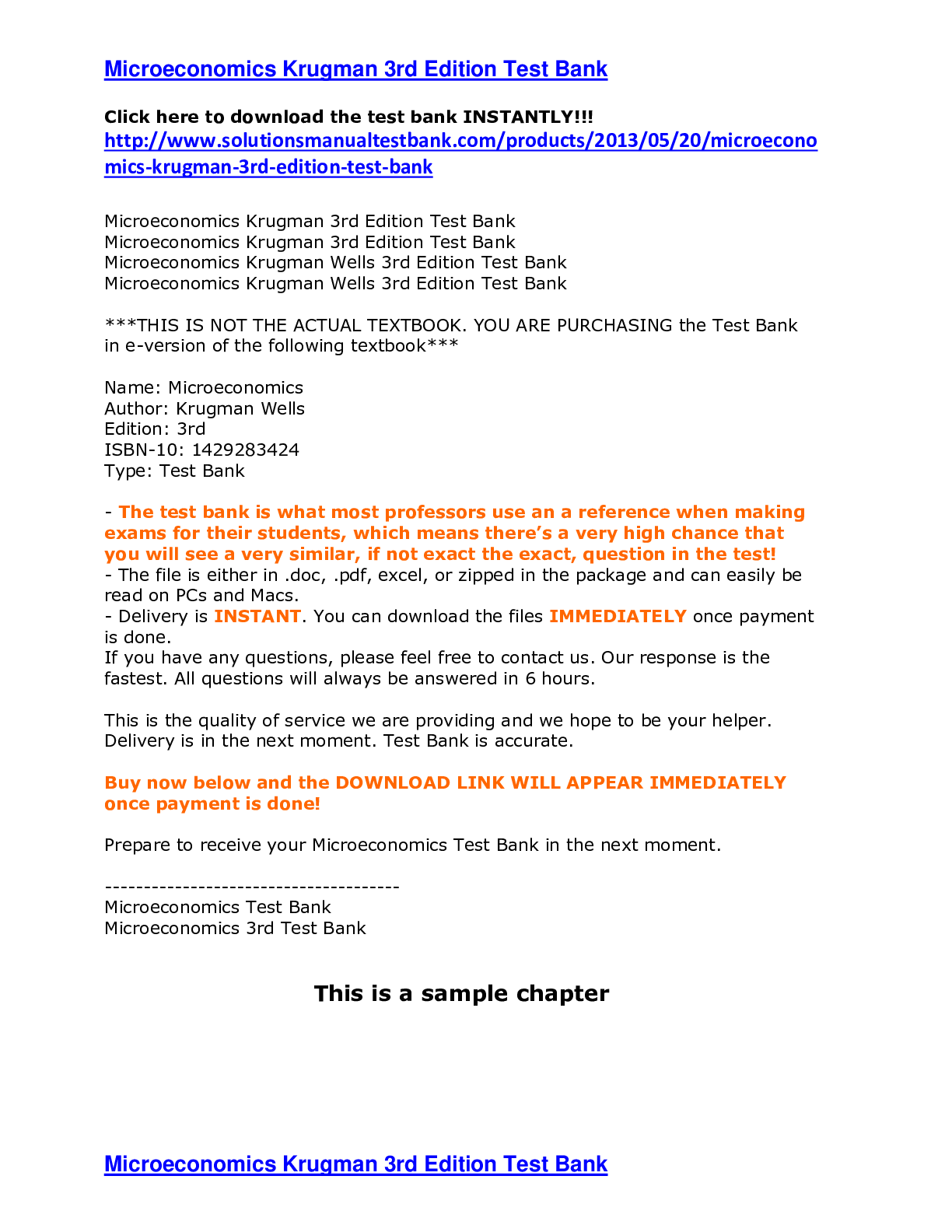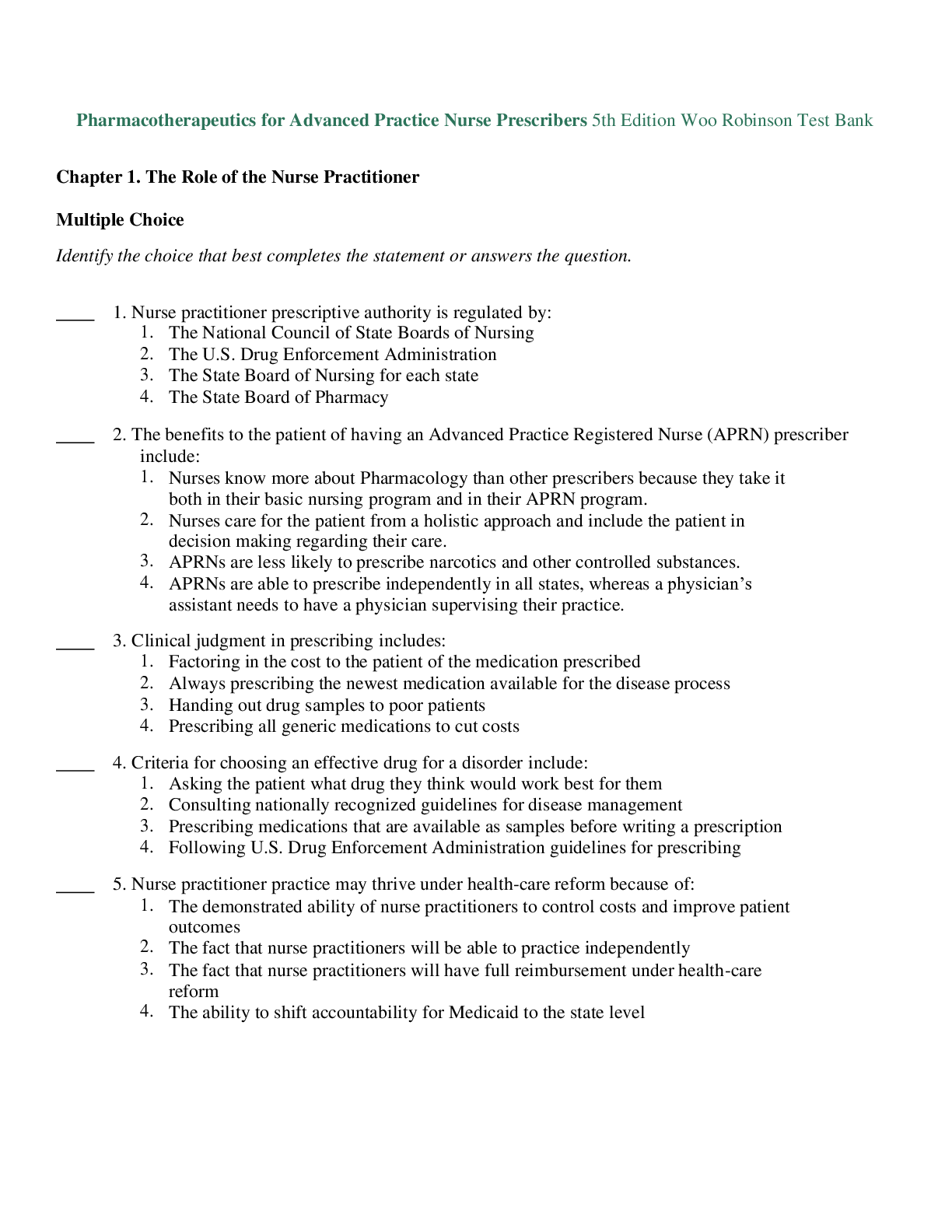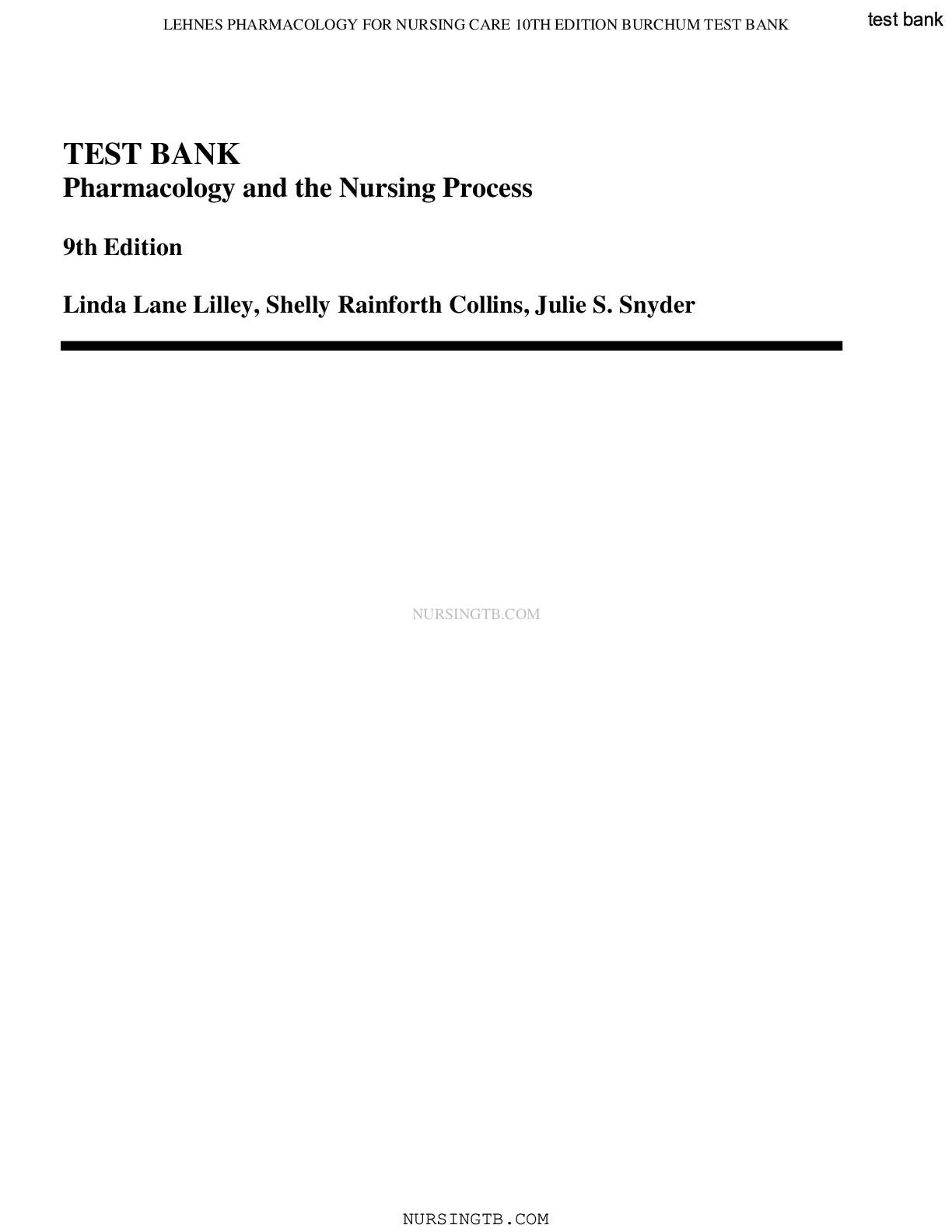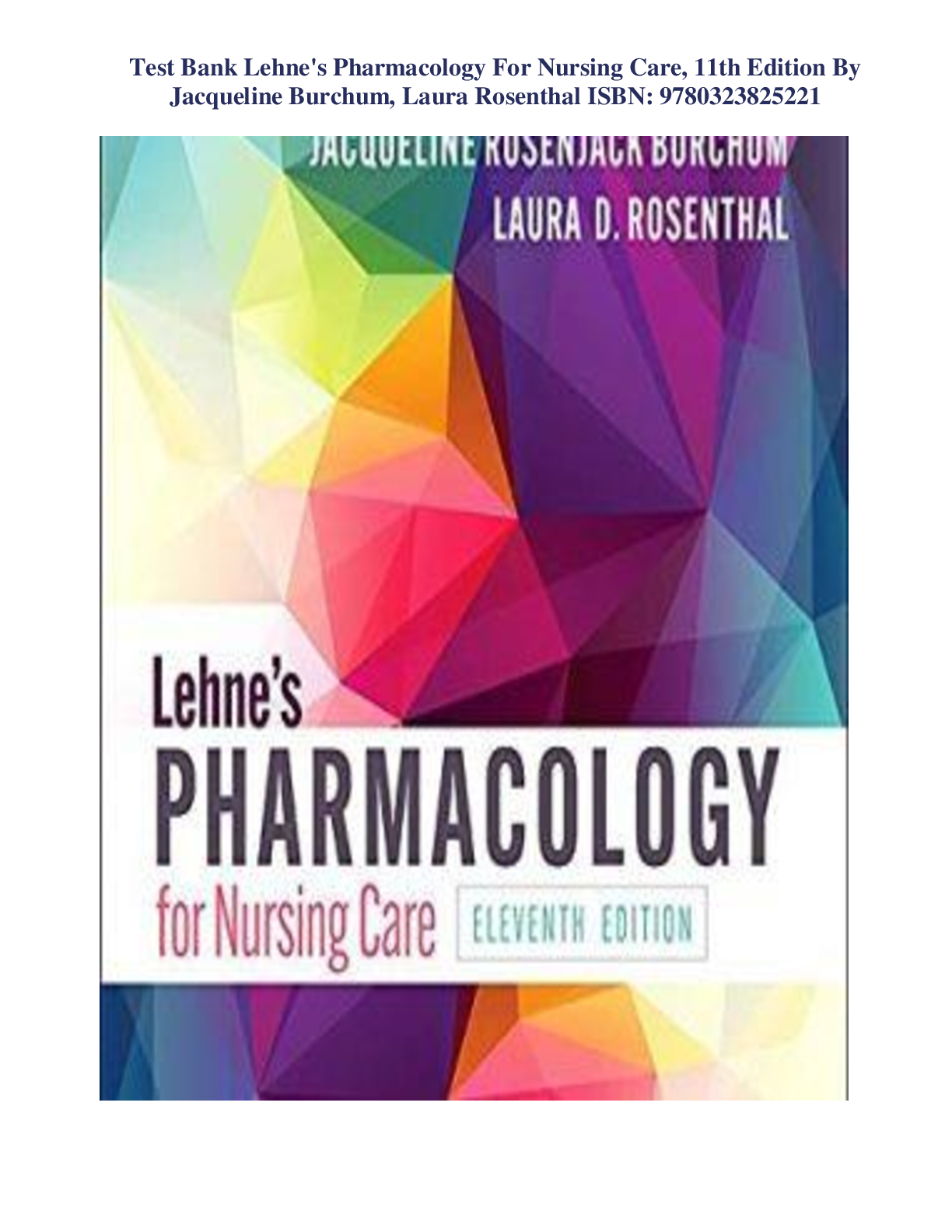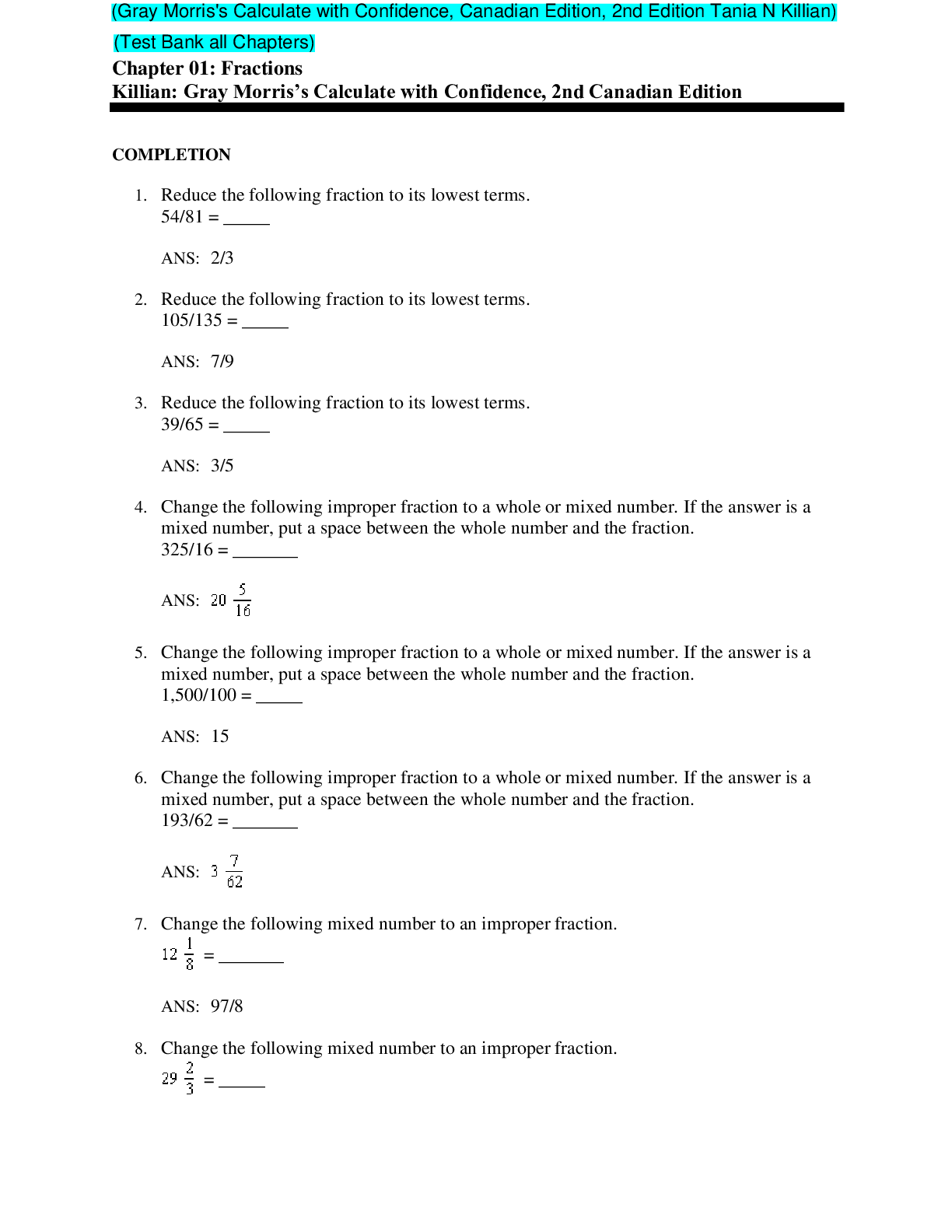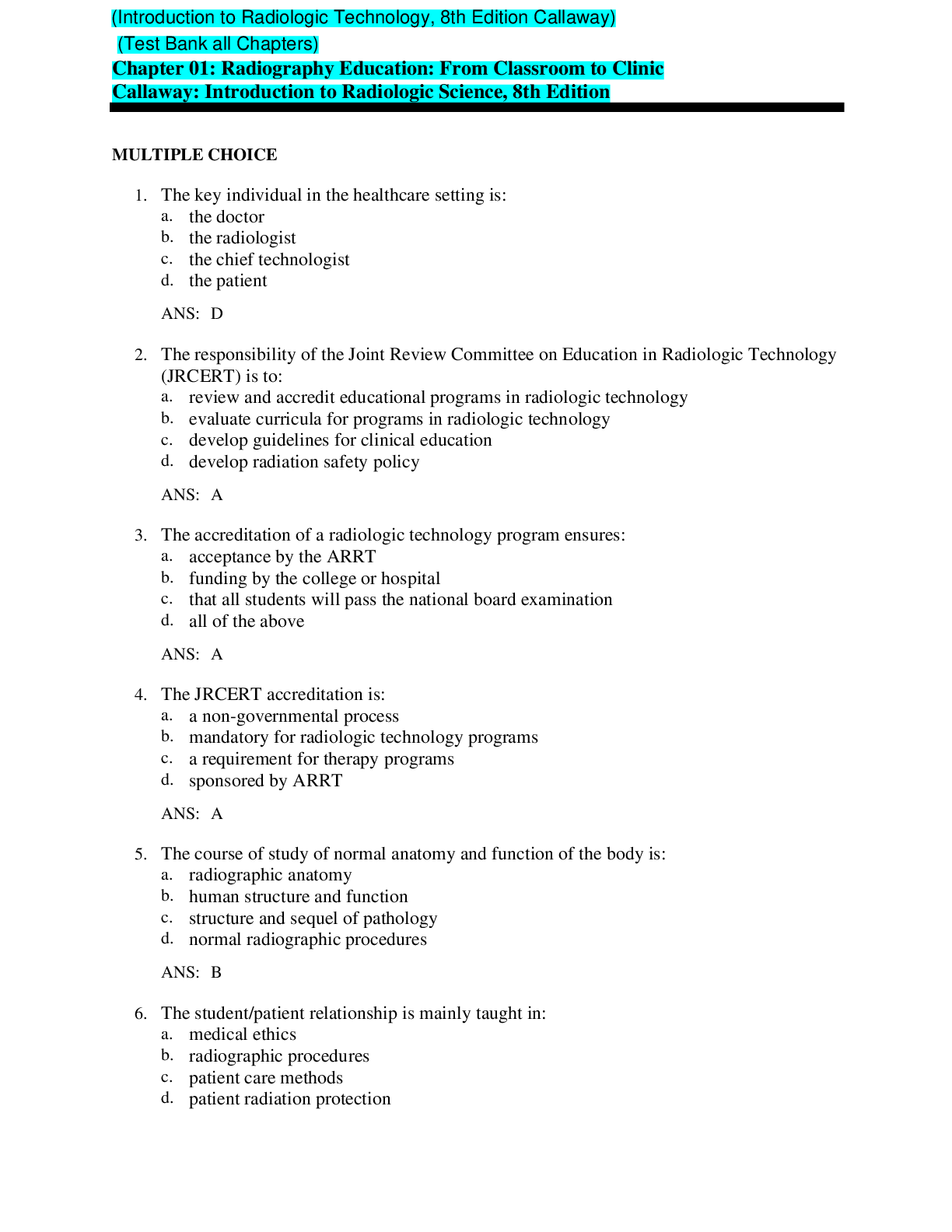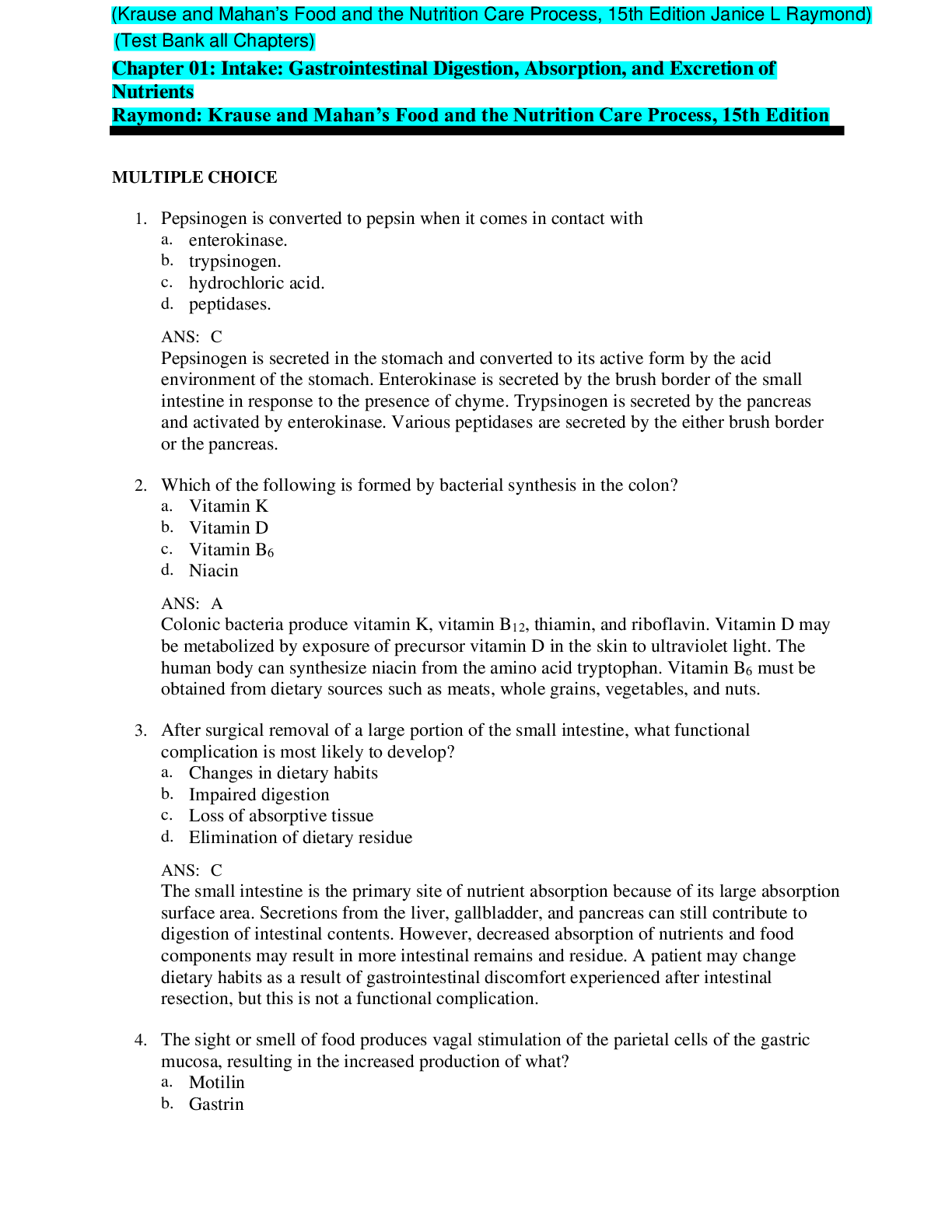Pharmacology > TEST BANK > ADVANCED PHARMACOLOGY QUIZZES.docx. COMPREHENSIVE QUESTIONS AND ANSWERS. GRADED A+ (All)
ADVANCED PHARMACOLOGY QUIZZES.docx. COMPREHENSIVE QUESTIONS AND ANSWERS. GRADED A+
Document Content and Description Below
Question 1 0 / 0 pts Which of the following statements is true about the prescribing practices of physicians? Antibiotic medications remain in the top five classifications of medications prescribed... . Older physicians tend to prescribe more appropriate medications than younger physicians. Correct! The dominant form of drug information used by primary care physicians continues to be that provided by pharmaceutical companies. Most physicians rely on a “therapeutic armamentarium” that consists of less than 100 drug preparations per physician. Even though most physicians claim to place little weight on drug advertisements, pharmaceutical representatives, and patient preference and state that they rely on academic sources for drug information, a study showed that commercial rather than scientific sources of drug information dominated their drug information materials. Younger physicians tend to prescribe fewer and more appropriate drugs. Antibiotics have dropped out of the top five classifications of drugs prescribed. Most physicians have a therapeutic armamentarium of about 144 drugs. Question 2 0 / 0 pts A primary care NP recommends an over-the-counter medication for a patient who has acid reflux. When teaching the patient about this drug, the NP should tell the patient: not to worry about taking this drug with any other medications. that over-the-counter acid reflux medications are generally safe to take with other medications. Correct! to take the dose recommended by the manufacturer. to avoid taking other drugs that cause sedation while taking this drug. Because patients often increase over-the-counter drug doses themselves, it is important to reinforce the need to follow the manufacturer’s recommendations for dosing. As with any drug, interactions may occur with other medications. Antacids do not cause sedation, so patients need not be cautioned to avoid other sedating medications. Question 3 0 / 0 pts A woman who has been taking a COCP for 2 months tells the primary care NP that she has had several headaches, breakthrough bleeding, and nausea. The NP should counsel the woman: Correct! that these effects will likely decrease in another month. to change to a progestin-only pill. to stop taking the COCP immediately. to use a backup form of contraception. Breakthrough bleeding, nausea, and headaches are common during the first 3 months of therapy and should improve without intervention. Progestin-only pills are used for lactating women only. Prolonged bleeding and severe headache would warrant discontinuation of the COCP. Backup contraception is not indicated. Question 4 0 / 0 pts A patient asks a primary care nurse practitioner (NP) about using over-the-counter medications to treat an upper respiratory infection with symptoms of cough, fever, and nasal congestion. The NP should: Correct! suggest using single-ingredient products to treat each symptom separately. tell the patient that over-the-counter medications are usually not effective in manufacturerrecommended doses. recommend a cough preparation that also contains acetaminophen. recommend a product containing antitussive, antipyretic, and decongestant ingredients. A basic principle guiding over-the-counter use is to look at specific symptoms and treat each separately because some products contain therapeutic doses of one ingredient and subtherapeutic doses of others. Cough preparations containing acetaminophen often do not contain therapeutic doses, and patients often overdose when they supplement with acetaminophen. Over-the-counter medications are effective at recommended doses. Patients should follow dosing recommendations on the package. Question 5 0 / 0 pts A patient has recurrent symptoms and tells the primary care NP that she can’t remember to take her medication all the time. The NP should: Correct! ask her about her lifestyle, her schedule, and her understanding of her condition. administer the medication in the clinic to ensure that she takes the drug. give her shortened regimens of the drug to facilitate compliance. provide written information about her condition and the medication. If the attitude is that the patient has a problem for the health care provider to solve, then the provider owns the problem and often hastens to solve it. When patients own their problems, they are more likely to engage in their care and treatment. Giving shortened regimens, providing written information, and administrating medication in the clinic are examples of the provider solving the problem for the patient. Question 6 0 / 0 pts A postpartum woman will begin taking the minipill while she is nursing her infant. The primary care NP should instruct the patient: that irregular periods while taking the minipill may indicate she is pregnant. Correct Answer that this method does not increase her risk of thromboembolic events. You Answered to use backup contraception while taking the minipill. to continue using the minipill for 6 months after she stops nursing. Minipills are used primarily in breastfeeding women. There is no increased risk for thromboembolic events for women taking these pills. It is not necessary to use a backup method of contraception. Women should be advised to contact the provider when they stop nursing so that a COCP can be prescribed. The more disrupted the bleeding pattern, the more likely it is that ovulation is inhibited. Question 7 0 / 0 pts A patient who weighs 170 lb wishes to lose weight, with a target weight goal of 125 lb. To initiate a program that will result in a loss of 1 lb per week, the primary care NP should recommend a dietary intake of _____ kcal. 2000 1000 1700 Correct! 1200 To lose weight, a patient must decrease intake to below the level needed to maintain weight. The patient must decrease daily calorie consumption by 500 kcal for each pound he or she wishes to lose weekly. Because it takes approximately 10 kcal per pound to maintain weight, the NP can assume that the patient currently takes in 1700 kcal/day and should recommend a diet of 1200 kcal/day for weight loss. Question 8 0 / 0 pts A patient who has hypothyroidism and is obese begins therapy with orlistat. The primary care NP teaches the patient about this drug and then asks the patient to describe its use. Which statement by the patient indicates understanding of the teaching? Correct Answer “I can expect the most benefit in the first few months.” “I may eat a high-fat diet while taking orlistat.” You Answered “I should take an increased dose of levothyroxine while I am taking orlistat.” “I should take fat-soluble vitamins each time I take orlistat.” In long-term studies on the use of orlistat, most of the weight loss occurred during the first months. Patients should not be counseled to eat a high-fat diet; the maximum amount of fat excretion is around 25% to 30%. Patients should take fat-soluble vitamins, but the vitamins should be taken at different times and not with orlistat. Orlistat interferes with levothyroxine absorption, so the two drugs should be taken at different times, and thyroid levels should be monitored with an increase in levothyroxine dose only when indicated by thyroid levels. Question 9 0 / 0 pts A patient with chronic back pain that is unrelieved by prescription analgesic medications asks a primary care nurse practitioner (NP) about acupuncture treatments. The NP should tell this patient: there is no valid research documenting the efficacy of this treatment for pain. biofield therapy has been shown to be more effective than acupuncture. Correct! most studies that show benefits of alternative therapies are based on observation. creatine has been shown to be an effective herbal choice to treat back pain. Current literature does not allow definitive conclusions to be drawn regarding the use of complementary and alternative medicine (CAM) because much of what appears in the literature continues to be based on observational reports and small studies. Biofield therapy has not been shown to be more effective than acupuncture. Creatine is used to increase muscle mass. Question 10 0 / 0 pts The primary care nurse practitioner (NP) is using critical thinking skills when: Correct! analyzing current research and synthesizing new approaches to patient care. using standardized protocols to guide patient care. adhering to scientific principles to solve a patient problem. following the practices of seasoned mentors when giving care. Practitioners use critical thinking skills by reviewing and analyzing current knowledge and synthesizing approaches to apply to unique patient situations. Using standardized protocols, adhering to scientific principles, and following practices of seasoned mentors may be useful, but these do not encompass the concept of critical thinking, which requires the practitioner to use what is known in new situations. Question 11 0 / 0 pts The primary care NP prescribes an inhaled corticosteroid for a patient who has asthma. The third-party payer for this patient denies coverage for the brand that comes in the specific strength the NP prescribes. The NP should: Correct Answer order the closest formulary-approved approximation of the drug and monitor effectiveness. provide pharmaceutical company samples of the medication for the patient. inform the patient that the drug must be paid for out of pocket because it is not covered. You Answered write a letter of medical necessity to the insurer to explain the need for this particular medication. The second step of medical decision making takes into account benefits versus costs along with an understanding that it is impossible to do everything because of limited resources. The NP should prescribe what is covered and evaluate its effectiveness; if it does not work, the thirdparty payer may be approached about the need for the other medication. Providing samples is not always possible, and this practice is being discouraged, so it is not a viable solution. Asking patients to pay out of pocket ultimately may be necessary but carries risks that the patient will not obtain the medication. Writing a letter of medical necessity may be indicated if the available drugs are not effective but is not the initial step. [Show More]
Last updated: 11 months ago
Preview 1 out of 142 pages
.png)
Reviews( 0 )
Document information
Connected school, study & course
About the document
Uploaded On
Mar 20, 2022
Number of pages
142
Written in
Additional information
This document has been written for:
Uploaded
Mar 20, 2022
Downloads
0
Views
65



.png)

.png)
.png)
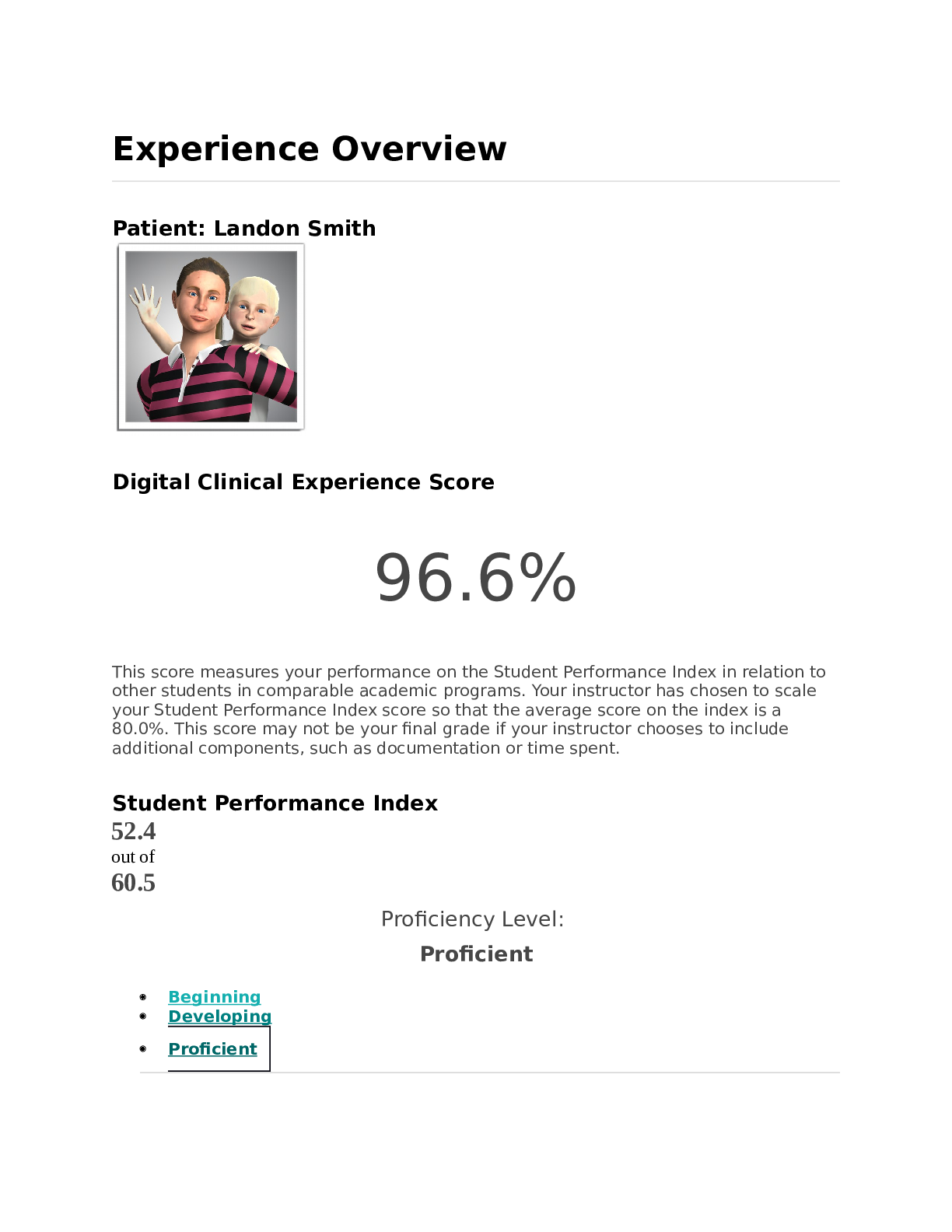
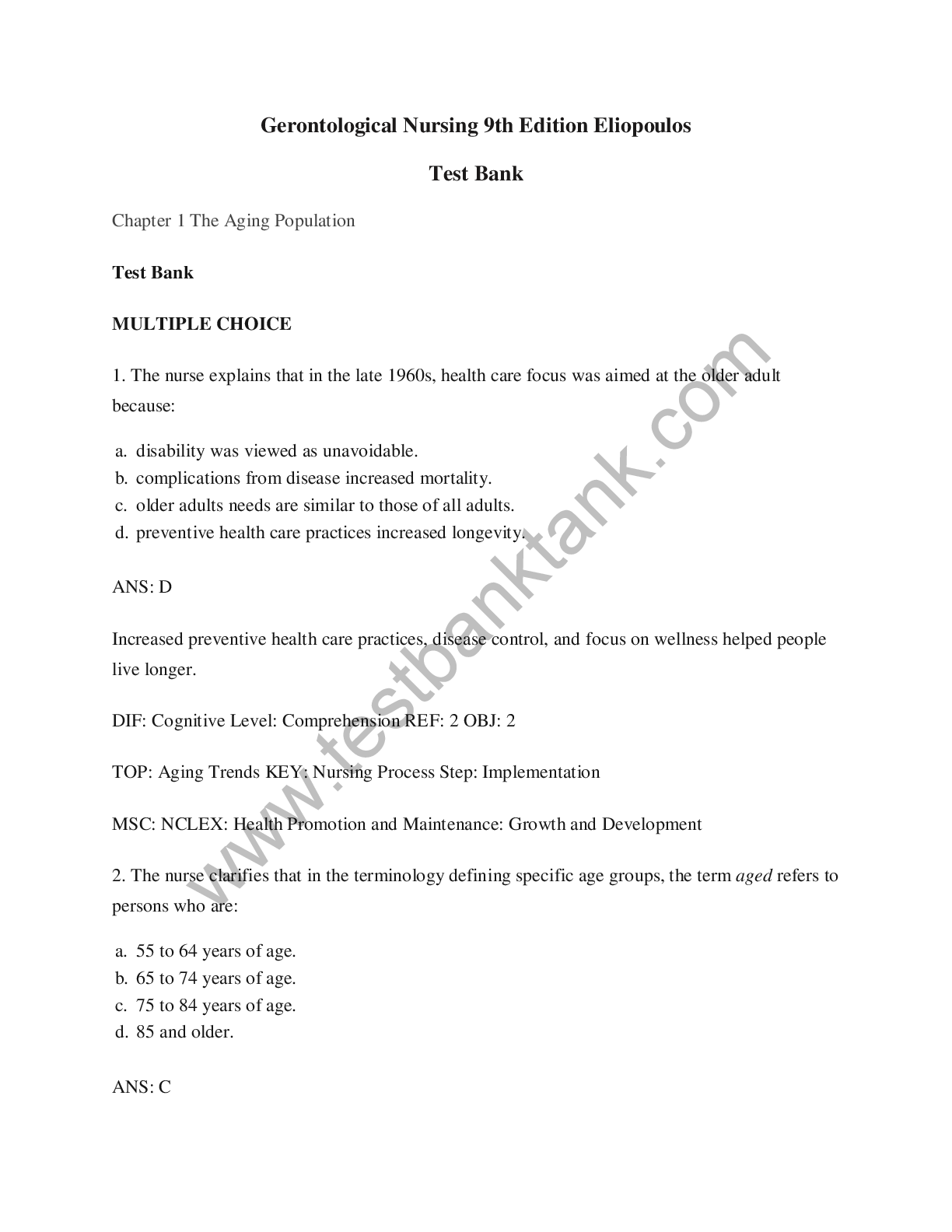
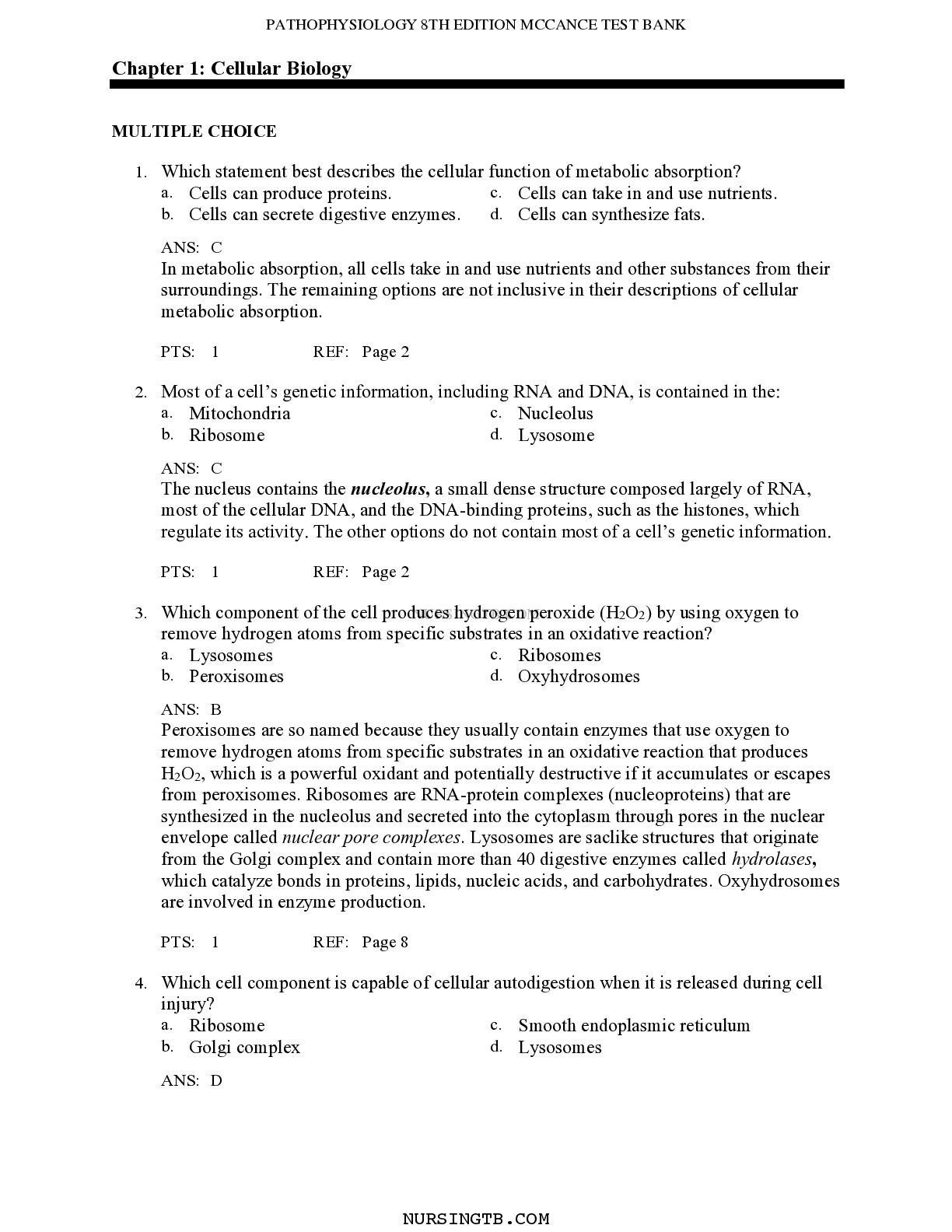
.png)

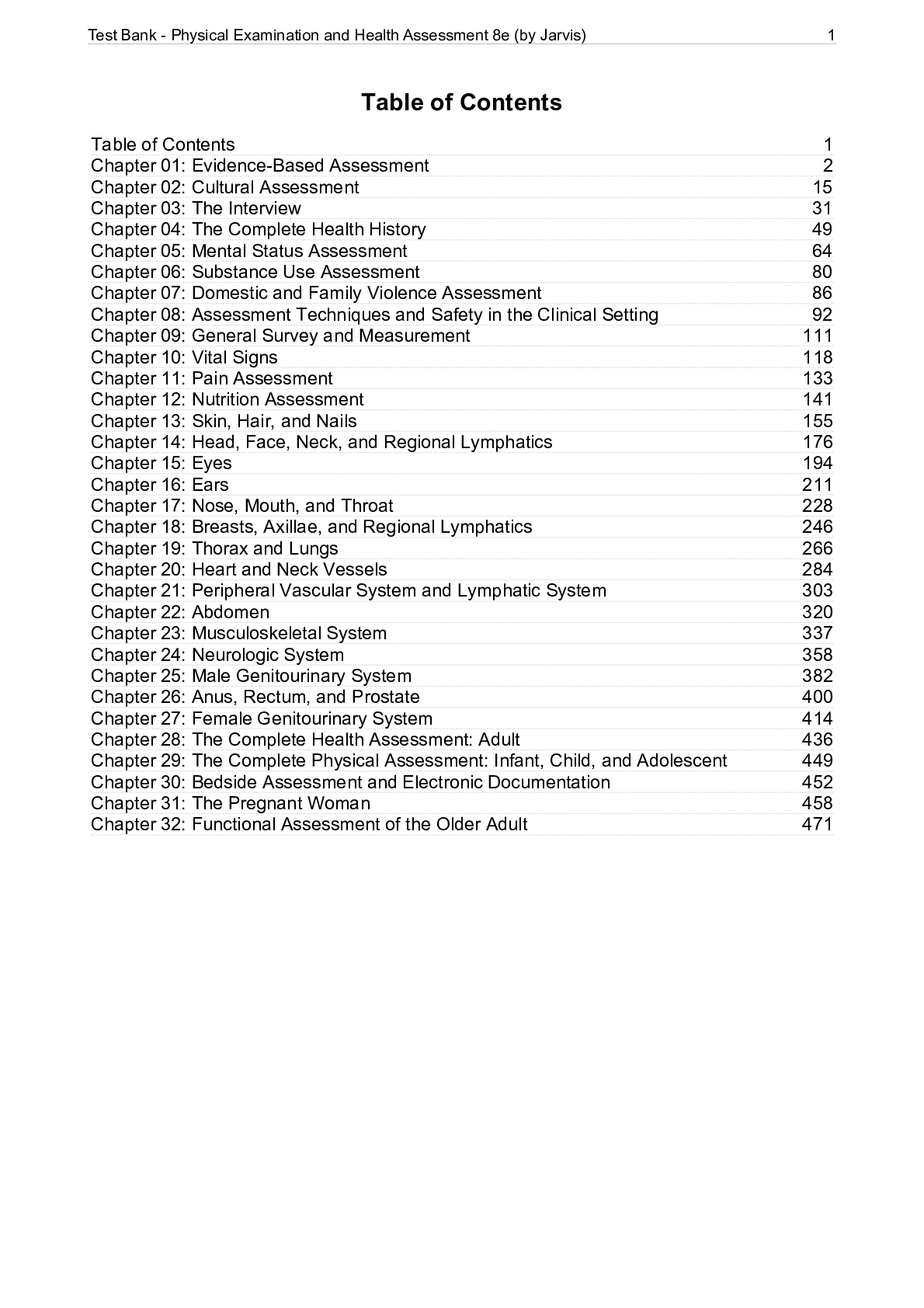
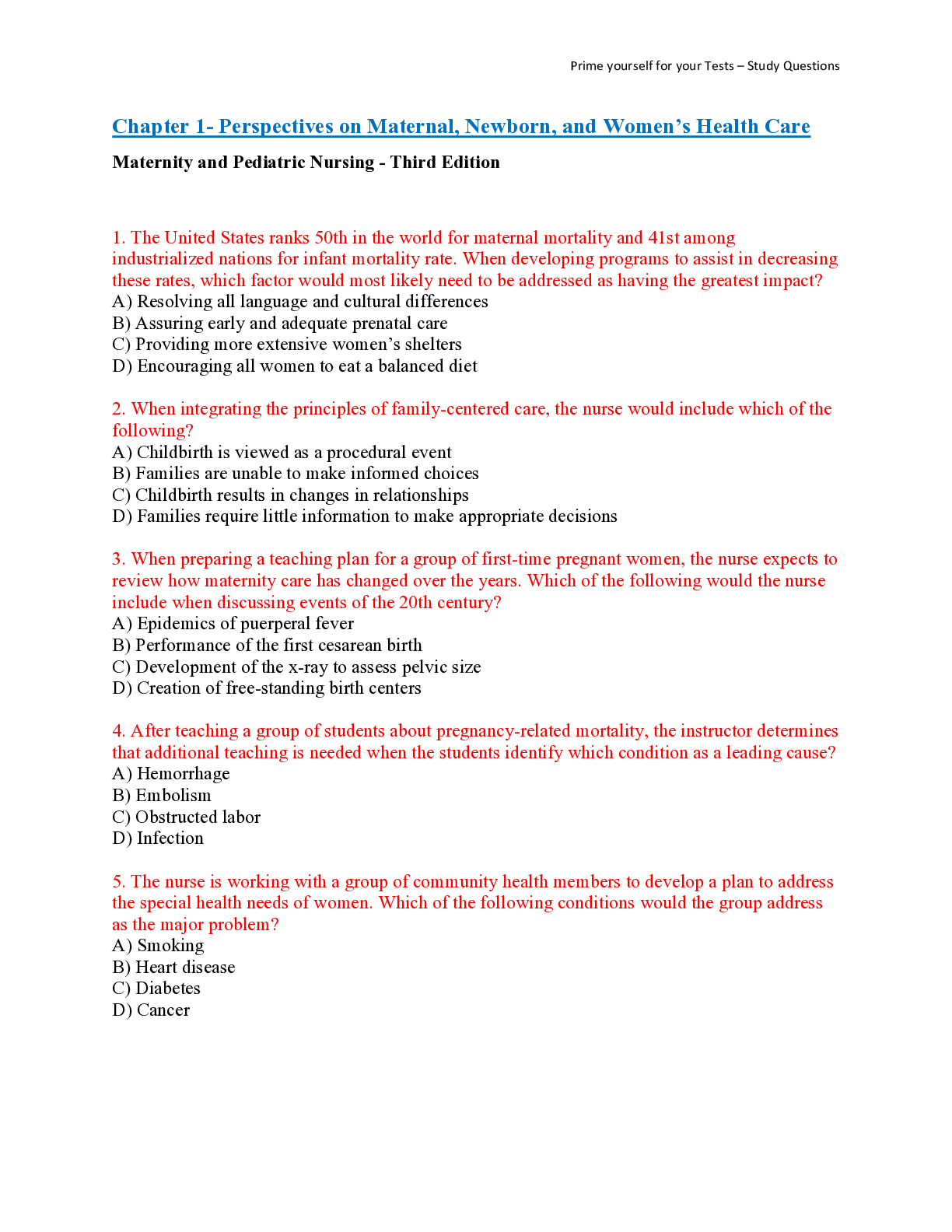
.png)
.png)
